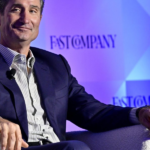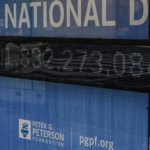What sets Blakely apart from most entrepreneurs was her refusal to accept outside investment.
The Florida State University grad started Spanx while still working her day job at Danka, spending nights researching fabrics, patents, and trademark designs. She wrote her own patent application, secured the Spanx trademark for $150, and found a hosiery mill willing to produce her prototype after multiple rejections. But by disallowing outside investment, she maintained total control over her company, and its profits.
When asked about the craziest thing she did as a business owner when just starting out, Blakely said she had just secured placement for Spanx in Neiman Marcus, but after noticing she was put in a “pocket” in the store’s expansive hosiery department, she bought bins at Office Depot and placed them at every cash register throughout the store—”which is so, so not okay,” she admitted.
“Neiman Marcus has a very strict visual department, but everybody thought somebody else approved it,” she said. “So I was trying to get the product out of the sleepiest corner of the store and move it around to where the customers actually were … You do whatever it takes.”
Blakely said her unauthorized gamble paid off: Customers began buying the product “like crazy,” and by the time management discovered the placement, the CEO reportedly said, “whatever this girl is doing, let her keep doing it.”
“I always say, ask for forgiveness, not permission,” she added.
When asked about her advice for young people aspiring to become billionaires, Blakely said it’s important to motivate yourself and not get discouraged by outside opinions and intrusive thoughts.
“In today’s world, ideas are the most vulnerable in the moment you have them,” she said. “I waited a year before I told any friends or family what I was working on, and that’s because I didn’t want ego to have to get involved too early. My family was like, ‘Sara, if it’s such a good idea, why hasn’t anybody already done it? Even if this is a good idea, the big guys will knock you off in six months, and you’ve spent your life savings on it.’ Had I heard those things the moment that I had the idea, I would probably still be selling fax machines.”









